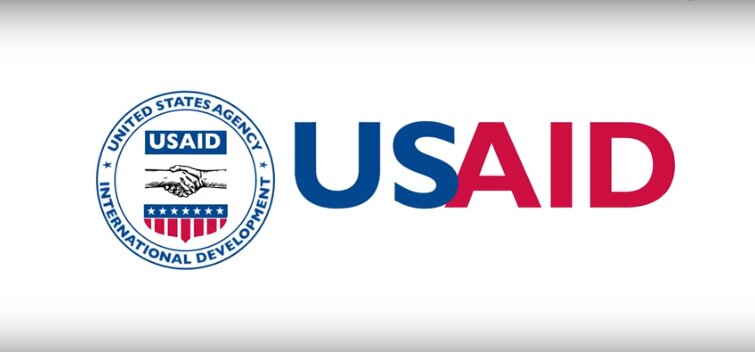A new era for Caribbean public health

JENÉE FARRELL
IN JANUARY, a pivotal shift in global health governance sent shock waves around the world. With an executive order setting the stage for the US to exit the World Health Organization by January 2026 – and with USAID now dismantled – the Caribbean finds itself at a critical crossroads.
For decades, US funding and expertise powered essential programmes across our region, from HIV/AIDS prevention to hurricane disaster response. Today, Caribbean nations must reimagine public health security by embracing regional innovation and South-South collaboration. For a region already vulnerable to climate change, infectious diseases, and economic instability, this shift is not just a challenge – it is an opportunity to build a healthier, more self-reliant future.
Rethinking health security
The implications of the US withdrawal are profound. Without nearly US$1 billion in annual US contributions to WHO’s budget, essential initiatives – from vaccine procurement to disease surveillance and emergency response – face significant funding gaps.
Smaller island developing states, which have historically relied on external support to bolster their health systems, are especially vulnerable to these disruptions. For example, US funding has been instrumental in programmes like the President’s Emergency Plan for AIDS Relief (PEPFAR), Caribbean Regional Programme (CRP), which has helped reduce HIV/AIDS prevalence in the Caribbean, and in disaster response efforts following hurricanes like Beryl and Dorian.
In response, Antigua and Barbuda is leading a proactive initiative to strengthen regional public health security. According to the Antigua Observer, the nation’s cabinet has approved plans to present a draft Caribbean Community (Caricom) resolution that would enable member states to set aside dedicated funds for vaccine procurement – operating independently of traditional international frameworks.
As chief of staff ambassador Lionel Hurst noted, “We are preparing ourselves, utilising a mechanism that could be very helpful whenever and if ever there is a pandemic in the future.”
This move not only promises to protect Caribbean nations from potential disruptions, but also offers a blueprint for others striving for healthcare autonomy.
Strengthening regional health systems through Carpha
In this new era of diminished external support, the Caribbean Public Health Agency (Carpha) – the region’s sole dedicated public health body – remains essential to safeguarding our shared future. Carpha’s co-ordination of regional health responses, enhancement of disease surveillance, and provision of technical expertise have proven vital, as demonstrated during the covid19 pandemic when it ensured equitable vaccine distribution and shared real-time infection data.
By fostering collaboration among member states, harnessing innovative solutions, and advocating sustainable health financing, Carpha can support a resilient public health infrastructure. However, achieving this will require greater investment from Caribbean governments and a renewed commitment to regional unity.
Forging South-South partnerships: The HeDPAC model
Alongside these regional initiatives, innovative partnerships like HeDPAC are emerging as powerful models for collaboration. HeDPAC is a health development platform dedicated to forging South-South partnerships between like-minded governments in Africa and the Caribbean, with champions like Paul Kagame, the president of Rwanda, and Mia Mottley, the prime minister of Barbados, leading the charge.
Focused on strengthening primary healthcare and bolstering health workforce capacities, HeDPAC facilitates the sharing of best practices, technology transfer, and regulatory innovation – key ingredients for achieving universal health coverage.
For example, Rwanda’s success in deploying community health workers and digital health tools could serve as a model for Caribbean nations seeking to improve primary-care access. Similarly, Barbados’s expertise in development finance in the context of climate change and growing inequalities could benefit African partners.
By embracing these innovative strategies, our region can not only counterbalance reduced US funding, but also overcome entrenched healthcare challenges, accelerating our journey toward robust and self-reliant health systems.
A call to action at the 48th Caricom meeting
The upcoming 48th regular meeting of Caricom Heads of Government, convened under the theme "Strength in Unity: Forging Caribbean Resilience, Inclusive Growth, and Sustainable Development," represents a critical juncture for our region. From February 19 to 21, Caribbean leaders must seize this opportunity to forge a bold path forward. Decisive action is imperative. Here’s what must be prioritised:
●
Deepen regional co-operation: Enhance CARPHA’s integration into national health strategies to co-ordinate effective responses to emerging threats.
●
Innovate financing: Embrace mechanisms like the proposed vaccine procurement fund to ensure sustainable, independent healthcare financing.
●
Strengthen South-South partnerships: Scale up collaborations with platforms such as HeDPAC to drive capacity building, technology transfer, and regulatory innovation.
The future is in our hands
The dismantling of USAID and the US exit from WHO mark the end of an era – but they also signal the beginning of a new chapter for Caribbean public health. By harnessing regional innovation, embracing South-South partnerships, and unifying under the leadership of Carpha, the Caribbean can build resilient, self-reliant health systems that safeguard our people today and for generations to come.
The future of Caribbean public health is in our hands. It’s time to innovate, collaborate, and secure a healthier, more sustainable tomorrow.
Jenée Farrell is a consultant in global health policy, communications and advocacy

Comments
"A new era for Caribbean public health"